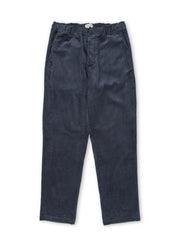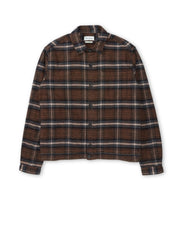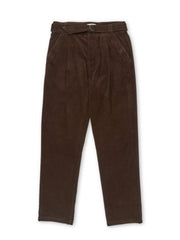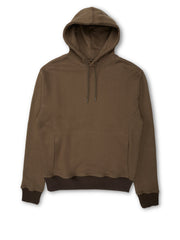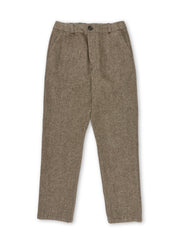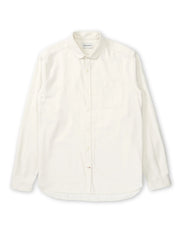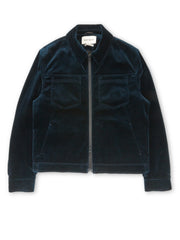Jack Harries is without doubt, a luminary of our times. He has been on this planet for precisely three decades, but in that time he has already made a substantial impact as a filmmaker, producer, and environmentalist. Harries is first and foremost a storyteller, and a damn good one at that. His subject is climate change, and he uses his documentary-making skills to advocate for sustainability, climate action, and conservation. His commitment to raising awareness about the environmental challenges we face is evident through his growing ouvre of work, projecting a positive and actionable sense of hope despite the challenges that we human beings face.
His journey into the world of filmmaking began early in life, using his innate talent for storytelling, coupled with his knack for capturing human experiences. Youtube was the platform that led to his voice being heard by millions, thanks to "JacksGap", the channel that he co-founded with his identical twin brother Finn. The channel became a window into their travel adventures, creative experiments, and thought-provoking discussions on pressing global issues. Their content resonated with a wide audience, but especially with young viewers who admired their authenticity and a genuine commitment to making a positive impact. Jack and Finn's adventures documented on the channel took their viewers on a visual odyssey, urging them to explore, learn, and empathise with the world's myriad experiences.
We caught up with Jack at his home in a stunning corner of Cornwall to shoot our new Winter collection and to learn more about his motivations and goals. You can watch the full interview or read the complete transcript below.
Hey Jack, so why don’t you introduce yourself?
Sure. My name is Jack Harries. I'm a documentary filmmaker and the co-founder of Earthrise Studio, which is a creative agency dedicated to communicating climate change. We're currently in my favourite place in the whole wide world, which is Cornwall. We're close to the border with Devon, near the Tamar Valley. And this is my house, an old Cornish water mill that has been here for hundreds of years. We're in the process of renovating it to become a home.

|
Newington Coat Barwell |
Drawstring Trousers |
Paraboot Montana |
It’s an incredible building - it must have a truly unique history?
It has been such an amazing journey learning about this house, as well as a process of connecting to my own roots as well. My great-grandfather was born 20 minutes from here, so reconnecting to that lineage, and learning about the history here has been really interesting. I've loved meeting so many amazing people who live around here, all of whom hold such incredible generational wisdom.
Back in the day, this mill was a local source of renewable energy. Humans have been harnessing hydropower for a long time! There's also an old cider press here that they used to hand-press apples with. I really wanted a place where I could start to try and practice my own values, to practice what I preach. It has always been a dream of mine to try and generate renewable energy, and one of the beautiful things about this property is it has water flowing past it. In the garden there's a very old hydro turbine that was built in the seventies and it was one of the first renewable energy schemes of its kind. It has since fallen into disrepair but I really want to get that up and running again. I have other slightly more eccentric aims like producing cider, too. We're in the process of planting an orchard here. Beyond that, I'm really looking forward to learning more about how to grow food and keep animals. I feel very much like I'm stepping out of my comfort zone as someone who was born and raised in the city. It makes me realize how little I know and I feel very humbled by the process of learning.

|
Milford Jacket |
Heavy T-Shirt |
Belted Trousers Whitton |
When you live in remote places, community becomes really important. Do you think there's something in that idea that we can extrapolate to the wider societal landscape?
I think a big part of the change that we need to make as a society when it comes to climate change and being more sustainable is practicing localism. It's not talked about enough, but we have all grown up with global supply chains, which rely heavily on fossil fuels. And of course, we can start to change our energy sources to be renewable, but ultimately we will need to consume less energy. And the way we do that is by going more local. Amazing things start to happen when we do that. We tap into our local food network and support local farmers and growers and artisans and makers, and these are people who struggle in the global economy.

|
Grandpa Coat Melrose |
Heavyweight Hoodie |
Drawstring Trousers |
I think Cornwall is somewhere that has really struggled with globalisation. And so community here is incredibly important, and it feels very nurturing to be surrounded by that community. I've had the chance to meet so many of my neighbours. They help each other out and support each other. It's important when you're in a more remote location, because loneliness is a real thing. And that can happen in cities too, where we're just used to very quick interactions with one another, and they don't often go so deep. Whereas here, I’ve noticed people really stop to talk and they ask how you're doing. I’ve found that very nourishing. Localism is not only key to living more sustainably, but it's also a way to build resilience. If we know our neighbours and we can help each other out then we're more resilient. I think all of us discovered that in the pandemic. There's a lot to learn from the lifestyles that people live in Cornwall and many rural areas in the uk.

|
Mansfield Jacket |
Fishtail Trousers |
Eton Collar Shirt |
So localism’s one way in which we can make it a practical step towards being better with our carbon footprint. But I think a lot of people feel overwhelmed by the steps they need to take? What would you say to them?
It's so easy to feel paralysed when it comes to trying to do the right thing for the environment. It feels like every step you take, you’re having some sort of negative impact on the planet because of the system we live in. The first thing to understand is it's a systemic issue. It's not the fault of the individual, but when we come together, then we can create systemic change. Is it Margaret Mead who has a quote that says “Never doubt that a group of committed citizens can change the world”? That concept of critical mass is really powerful. So the first thing is to find a community that also cares about what’s happening to the climate and that wants to take action, because when we act together we are so much more powerful.

|
Talbot Roll Neck Jumper |
Dock Hat Rib |
It starts with asking questions. Where does my food come from? What's the process involved in that? What's powering this car/train/airplane? Where do my clothes come from? That's a big part of why I love Oliver Spencer so much. You guys are asking those questions. What do we do with old garments that we no longer wear? How can we upcycle those and put them back into new clothes? It has been the same with furnishing this place. I've loved discovering old furniture like this beautiful table that used to be in a chapel. We live in a very disposable generation.
What I've learned over the years is that everyone has a role to play in this movement. Activism can look like many different things. It can look like getting out into the streets and shouting from the top of your voice. It can look like replacing your car with an electric car, or growing your own food, or it can look like having a difficult conversation with your children or your friend about what's happening. I'm a really passionate believer that everyone has a role to play in this movement, and it just starts by asking yourself what you are good at. For me, it's making YouTube videos. I wish I was a scientist or a mathematician who could come up with some amazing climate solution! But those people exist too and so if we all work together and do what we're best at, then we have a shot at tackling this thing.

What was the genesis of your filmmaking about environmental issues and climate change?
My background is making films on the internet. I've been doing that since I was 18. I feel very lucky to have been able to do that as a career and to build a platform. About five years into that journey, I felt a real responsibility to use that platform to raise awareness of important issues. Everything changed in 2015 when I went to Greenland and I learned about climate change for the first time. My mum had talked about it when I was growing up, but like most kids, I just thought it was some boring thing that I didn't really need to care about. But going to Greenland was when the scales fell from my eyes. For the first time I saw glaciers cascading into the ocean beneath. I heard it, I felt it. It was visceral and very real. So suddenly I was transported to this literal frontline of the climate crisis. It was a real wake up moment, and I realised that this would become the biggest issue of our time. I ended up traveling to many of the front lines of the climate crisis, from Somaliland in 2017 during a severe drought, to Kibar, a remote island nation in the South Pacific, which is disappearing due to rising sea levels. That then led me to activism. For a few years I was one of those angry people out in the streets. I got myself arrested and did all that sort of stuff. But there came a time - precisely 14 hours of being in a prison cell - where I asked myself, am I using my skills as wisely as I could?

|
Norton Jacket Velvet |
Norton Jacket Velvet |
So I came back to filmmaking. My aim with that is to try and tell human stories of people living on the front lines of the climate crisis, and also people coming up with amazing solutions. I think as humans, we care about other stories of people. For a long time we've talked about climate change as something that's happening in some remote place in a rainforest or a glacier. It's hard to understand how that impacts us. There is a lot of fear and a lot of doom in the climate space and that makes people turn off in many cases, so I also wanted to highlight the positives of the various innovations and successes.
In 2020 I founded Earthrise Studio with the aim of doing just that, telling hopeful stories about the climate crisis. It has been an amazing journey building that business over the last three years. I've had the chance to interview some amazing people such as David Attenborough and Barack Obama, but more importantly to tell inspiring stories of people around the world who are doing amazing things to make a difference. And honestly, it's given me a lot of hope.

What has been one of the biggest challenges you've had to overcome? Has there been any kind of resistance that was unexpected or maybe backlash from things you might have spoken about?
I think many people are afraid of speaking out about this topic because they're worried about not knowing enough, and being called a hypocrite. We're all hypocrites in some regard because we're all deeply complicit within this imperfect system. None of us are perfect, but that doesn't mean that we can't try and make a difference. I've had days where I ask myself why I'm doing it. The climate space can be an intense place to operate. The sheer volume of information to consume can feel totally overwhelming at times. But ultimately I find so much hope there because when you have a problem, you can either focus on the issue or you can fall in love with the solutions. And there are so many amazing solutions that we could be utilising and rolling out if only we had the collective will. And so I love that space of imagination and creativity that comes with trying to solve a really complicated problem. And we will solve it.



